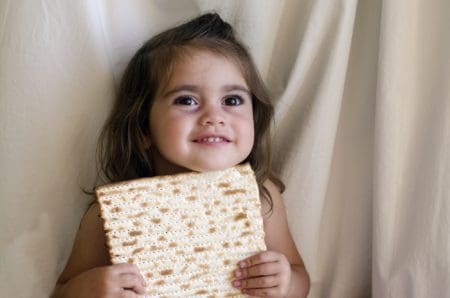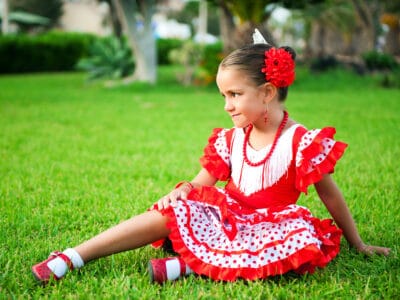There is so much majesty, history, and mythology to be found within Gaelic boy names that choosing the right one for your son can be difficult.
Here we have listed the best Gaelic names for boys, including detailed insights on their meanings, pronunciation, namesakes, popularity, and more.
100 Best Gaelic Names for Boys
Read on to find the perfect Gaelic male name for your cool new arrival, and learn all you need to know about it.
Adare
Adare is a smart, earthy-sounding name that means “from the oak grove” in Gaelic. Oak trees are strong, beautiful, and majestic, so a beautiful form of nature to use as a namesake for your beautiful baby boy. Although uncommon as a given name, Adare may be more commonly recognized as the Scottish-originating surname Adair. However, it is worth knowing that the family crest from the Adair line takes inspiration from grisly medieval Irish history surrounding the Athdare family, and therefore features the image of a severed head! Perhaps a tad gruesome to link to your child, sticking with the spelling Adare may be a safer bet.
- Origin: Gaelic
- Meaning: From the oak grove
- Variations: Adair, Athdare
- Popularity: Adare is an uncommon given name in the US and has never ranked in the top 1000.
Ailbe
Ailbe is a crisp, cool Gaelic name for a boy. Meaning “white,” Ailbe is simple and sweet and was the name of an Irish saint in the 6th-century. Ailbe could also be used as a Gaelic-inspired girl name, usually spelled Ailbhe.
- Origin: Gaelic, Irish
- Meaning: White
- Pronunciation: all-bay, al-vuh
- Variations: Alby
- Namesakes: Saint Ailbhe, a 6th-century Irish saint.
Ailbeart
Ailbeart is the Scottish Gaelic equivalent of the Germanic name Albert. A unique and uncommonly-heart variation, Ailbeart still carries the shining meaning of “noble, bright,” offering power and luck to those who bear the strong name. And Bertie would still make a brilliant nickname, whichever variation you choose!
- Origin: Gaelic, Scottish, Germanic
- Meaning: Noble, bright
- Variations: Albert, Alberto, Aubert
Ailen
Your baby boy sure is handsome, so why not choose a Gaelic male name to reflect him perfectly? Ailen is a cool, unique but attractive-sounding name for a boy. “A” names are always strong leaders, and although Ailen may unfortunately auto-correct to “alien,” we’re sure that just makes the name even more out-of-this-world!
- Origin: Gaelic
- Meaning: Handsome
Ailfryd
Ailfryd is the Gaelic form of the English masculine name Alfred, which in turn derived from the Anglo-Saxon Ælfræd. This line group of names means “elf counsel,” which is the sweetest of meanings to add a bit of magic and mythology into your son’s life. There are many masculine variations of Alfred in different languages and cultures across the world, but we like Ailfryd as a unique Gaelic boy name. Plus, it can still be shortened to the popular nicknames Alf, Alfie, and Fred!
- Origin: Gaelic
- Meaning: Elf counsel
- Variations: Alfred, Ailfrid, Ælfræd, Alfredo
- Popularity: Although Ailfryd itself isn’t in the US top 1000 names, its variation Alfred has ranked ever since 1900, peaking as the 33rd most popular name in the US in 1928.
Airt
Short and stylish, Airt is a cool name for any male. Airt comes from the Celtic Art, which means “bear.” As well as being powerful, fierce and honorable creatures, bears are also seen as sweet, cuddly, and loving. So, for a name as well-rounded and layered as you believe your beautiful baby boy to be, consider Airt for a simple, timeless choice that is certain to be remembered.
- Origin: Irish, Celtic, Gaelic
- Meaning: Bear, champion
- Variations: Art, Arthur
Alastair
Alastair is the cool, Gaelic variation of the English name Alexander. Although its traditional Scottish spelling would be Alasdair, Alastair seems to have caught on as the more popular, Anglicized version. Despite having been used in Scotland since the 17th-century, Alastair still manages to sound modern and trendy, and we wouldn’t be surprised to see a surge in the name’s popularity in the future.
- Origin: Scottish, Gaelic
- Meaning: Defender of man
- Variations: Alastor, Alasdair, Alexander
Angus
A strong, traditional name rooted in mythology, Angus is a confident choice of name for a boy. According to Irish myth, Aengus was considered a supernatural deity and the God of youth and love. In Greek mythology, Angus was a creature with a hundred eyes. In food terms, Angus refers to a certain breed of beef, popular for burgers, but that might not be the strongest choice of associations to your son’s name! Meaning “one strength” or “one choice,” Angus holds that one-of-a-kind aura with connotations of power and wisdom. Plus, Gus makes a fun, amicable nickname!
- Origin: Gaelic, Scottish, Irish
- Meaning: One strength, one choice
- Variations: Aonghas, Aengus
- Namesakes: Angus Young, a Scottish-Australian guitarist and member of the band AC/DC.
Aodhan
Aodhan is a brilliant variation on the more-common Aidan, offering a more traditional spin and Gaelic influences. Aodhan is derived from Aodh, which means “fiery,” thus leading to the confident, almost-magical meaning of “little fiery one.” For a feisty little chap who knows what he wants, Aodhan is a great choice!
- Origin: Gaelic, Scottish, Irish
- Meaning: Little fiery one, born of fire
- Variations: Aidan, Aeddan
Arlan
An uncommon name meaning “oath” or “pledge” in Gaelic, Arlan is a beautiful promise of a name to bestow upon your son. Its meaning is both wholesome and powerful and beautifully represents your dedication to love and cherish him forever.
- Origin: Gaelic
- Meaning: Oath, pledge
- Variations: Harlan, Arlen
Arran
The Isle of Arran is a geographically spectacular island located off the west coast of Scotland. If your family has sentimental ties to this area, Arran could be an awesome name to consider. It shouldn’t be confused with the Aran Island of Ireland, although Aran is a worthy name to consider for the same reason! Taking the locational association away, Arran may be considered a cool variation on the biblical boy’s name Aaron, which is dramatically more popular.
- Origin: Gaelic, Scottish
- Meaning: High place, peaked island
- Variations: Aaron, Aran, Arun
Baran
An uncommon but stylish choice for a boy, Baran has been used as a given name derived from the noble title of “Baron.” Therefore, Baran carries an air of dignity and grace, as well as somehow sounding effortlessly modern and unique. It is worth noting that, in Persian, “baran” means “rain,” which is a delightful and fresh alternative way to view the name, too.
- Origin: Gaelic, Irish, Persian
- Meaning: Noble warrior
- Variations: Baron, Barun
Beathan
Beathan is an unusual name but radiates light and celebration from its simple yet stunning meaning. Beathan is derived from the Scottish Gaelic word “beatha,” which simply means “life.” A magical meaning to have in your baby’s name, and a unique but stylish-sounding name at that.
- Origin: Gaelic, Scottish
- Meaning: Life
- Variations: Beaha, Beathag
Blair
As well as being a common surname, Blair has become a sweet, unisex given name with an earthy and calm vibe. Meaning “field,” “plain,” or “meadow” in Gaelic, Blair evokes the feelings of possibility and freedom which can only be associated with nature – a lovely, fresh sentiment. Blair is short and sweet and also works as a pretty Gaelic feminine name, most usually spelled Blaire.
- Origin: Gaelic, Scottish
- Meaning: Field, plain, meadow
- Variations: Blaire
Boyd
Boyd is a deep, masculine, Gaelic boy’s name and one which is certain to stand out! Boyd was born from the term “boidhe,” meaning “fair” or “yellow,” so would make an adorable name for a baby born with shining blonde locks. Also, some say that the name comes from the Gaelic for the Isle of Bute in Scotland, Bhoid. If you have family ties to this area, Boyd could, again, be a meaningful name to choose.
- Origin: Scottish, Gaelic
- Meaning: Yellow, fair haired
- Variations: Buidhe, Boid, Boyt
Brochan
We have a bit of an unusual name meaning here! Brochan, which sounds like a magically earthy, wilderness-inspired name, actually translates from Gaelic to mean “porridge!” A humble but popular breakfast staple, it’d be hard to find anyone who dislikes the name Brochan because of its meaning. There is actually a Gaelic folk song named “Brochan Lom,” which could be a fun reference to use when sharing the name or simply to sing to baby Brochan as he grows up, big and strong from all that porridge.
- Origin: Gaelic, Welsh, Scottish
- Meaning: Porridge
- Variations: Brock
Brody
Although its true meaning is debated, Brody is still a sweet, Gaelic boy’s name inspired by the rugged beauty of the natural world. In Gaelic, “brodie” means “brow” or “a little ridge,” and the Gaelic word “brothach” means “muddy place.” Take from these ideas whichever meaning you prefer, but we think all these meanings evoke all kinds of adventure and wonder!
- Origin: Gaelic
- Meaning: A little ridge, a brow, a muddy place
- Variations: Brodie, Brothach, Brodha
Bryn
A short, simple but classic name, Bryn literally translates as “hill” in Welsh. Everyone could interpret this meaning in a different way, but that’s what makes it so special! Whether you have overcome a great challenge, want your little one to dream high, or you just love the beauty of the outdoors, Bryn is a beautiful name with an inspiring meaning. If you’d like a name with more syllables, Bryn could be elongated to Brynmor. Brynn is also a sweet spelling but more associated as a feminine version of this unisex name.
- Origin: Welsh, Gaelic
- Meaning: Hill
- Variations: Brinn, Brynmor
Callum
The sweet, humble name Callum is the Gaelic form of the Latin boy’s name Columba. Both mean “dove,” a beautiful, pure, and majestic bird and symbol of peace. For a calm, spiritual name of Gaelic and Latin origin, Callum is a worthy choice indeed.
- Origin: Gaelic, Scottish, Latin
- Meaning: Dove
- Variations: Calum
- Popularity: Callum only recently entered the top 1000 most popular baby name charts in 2008, and has peaked at the modest rank of 335 in 2020, leaving plenty of room for growth in popularity.
Cathal
Cathal is a traditional Irish name of power. The name hails from medieval times, with several notable kings of the period named Cathal and also a 7th-century Irish saint. Many unfamiliar with the name may find the “th” of the spelling confusing, as the name is traditionally pronounced “ka-hal,” leading to the coining of variations such as Cahill or Cahal. To keep with tradition in choosing your Gaelic name for boys, stick with Cathal as a beautiful, strong option.
- Origin: Gaelic, Irish
- Meaning: Strong in battle
- Pronunciation: ka-hal
- Variations: Cahill, Cahal
- Namesakes: Cathal Ó Searcaigh, an Irish language poet. Saint Cathal of Taranto, a 7th-century Irish monk and patron saint of the Sicilian Normans.
- Popularity: Although it declined in popularity a small amount in later years, Cathal spent most of the 2000s in the Irish top 40 baby boy names, according to CSO.
Cearbhall
Cearbhall dates back to medieval Ireland and, although the original meaning of the name is not recorded for certain, it is said to mean “fierce warrior.” So, quite the powerful name to bestow upon a sweet boy! As well as this, the Gaelic word “cearbh” means “hacking,” which is also quite a feisty sentiment to include in a name. Unless you’d like to interpret this as though baby Cearbhall has hacked his way into your heart? However you interpret the name, Cearbhall is a strong, confident name for any male.
- Origin: Gaelic, Irish
- Meaning: Fierce warrior, hacker
- Pronunciation: KER-vahl, kih-er-vahl
- Variations: Cerball, Carroll
Cian
Cian is a popular Gaelic boy’s name that means “ancient.” As well as being commonly heard, Cian is also traditional, making the name nice and accessible even to those unfamiliar with the Gaelic language. Cian also features in Irish mythology, as he was the son of Dian Cecht, the god of healing. According to legend, Cian had the ability to transform into a pig at will in order to escape capture!
- Origin: Gaelic
- Meaning: Ancient
- Variations: Kian, Kyan
- Popularity: In Ireland, Cian is a consistently popular name, and peaked as the seventh most popular masculine name in 2004 and 2005.
Ciarán
Ciarán is a very strong, traditional Gaelic boy name, which has been around for hundreds of years. In that time, no less than 26 saints have had the name, making it a particularly noble and popular choice! Meaning “little dark one,” Ciarán holds a certain intrigue about it, which could be considered even magical, in fact. The name has become more accessible with the modern spelling variations such as Kieran or Kieron, but the traditional Ciarán is always a winner in our eyes.
- Origin: Irish, Gaelic, Scottish
- Meaning: Little dark one
- Variations: Kieran, Kyran, Kier
- Namesakes: Ciaran Hinds, Irish actor. Ciarán the Elder, an early Irish saint.
Cillian
The meaning of Cillian may be up for debate, but it’s status as a unique and traditional Irish name certainly aren’t! As “cill” means “church” in Gaelic, Cillian is said to mean “from the church” or perhaps “little church.” Both are spiritual and pure meanings, perfect for those with a religious background. Conversely, it has been argued that Cillian is a form of the name Cellach, also Irish, which means “war” or “strife.” Not the most peaceful of associations to the name, but you are welcome to use your own interpretations as the influence behind your Cillian’s name.
- Origin: Irish, Gaelic
- Meaning: Little church, war
- Pronunciation: kil-ee-an
- Variations: Killian
- Namesakes: Cillian Murphy, an Irish actor. Saint Kilian, an Irish missionary bishop and saint.
Colm
Colm comes from the Gaelic form of “columba,” which is Latin for “dove.” A beautiful bird and symbol of peace, a dove makes a sweet bird for your child to use as a namesake. You may not think at first glance that Colm is spoken with two syllables, but in actual fact the name has a very similar pronunciation to the popular Callum. Still, Colm is short and sweet, and although the name is very popular in Ireland, it remains rare in the US.
- Origin: Irish, Gaelic, Latin
- Meaning: Dove
- Pronunciation: collum, kullum
- Variations: Colum, Columba, Malcolm, Callum
- Namesakes: Colm Wilkinson, an Irish actor and singer. Colm Byrne, an Irish playwright. Colm Toibin, a contemporary Irish novelist.
- Popularity: Despite not having ranked in the US top baby names charts, Colm is a very popular name in Ireland. It was in the top 50 names from 1964-1990, and although it has seen a steady decrease in popularity since then, it is still in the top 300 names as of 2020.
Conall
If you are considering naming your son Conall, you may be glad to hear that there are quite a few avenues of origin and meaning to the name for you to explore. As well as being a unique, soft-sounding name of traditional Gaelic origin, Conall holds the meaning of “strong wolf,” a feisty, powerful animal comparison to make. As well as this, Conall was believed to be the name of one of the men who rolled back the stone covering Jesus’ tomb when he arose that Easter morning. Several kings of both Ireland and Scotland have borne the name, and according to legend, the mighty Conall Cearnach was one of the Knights of the Round Table. There is so much depth to this beautiful name that Conall will no doubt enjoy reading up on its meaning in further detail as he grows older.
- Origin: Gaelic, Irish, Scottish
- Meaning: Strong wolf
- Pronunciation: KAHN-al
- Namesakes: Saint Conal, a 5th-century Irish saint. Conall Grant, an Irish king. Conall mac Taidg, a Scottish king.
Conchúr
Conchúr is a modern variation on the classic Irish name Conor, meaning “lover of wolves.” It is associated with the impressive name Conchobar, borne by several Irish legends, such as the legendary king of Ulster, Conchobar mac Nessa, and the 1st-century High King of Ireland, Conchobar Abradruad.
- Origin: Irish, Gaelic
- Meaning: Lover of wolves
- Variations: Conor, Conchobar
Conn
According to ancient Irish legend, there once lived a mighty king named Conn Cétchathach. Known throughout history as Conn of the Hundred Battles, this legendary warrior was a High King of Ireland, ruling over multiple other royals, and had a phenomenal track record in winning the battles he fought. Quite the feisty namesake for a little boy to live up to, don’t you think? Conn is a sweet, effortlessly cool name for a male and makes a smart alternative to Connor.
- Origin: Gaelic, Irish
- Meaning: Intellect, chief
- Namesakes: Conn of the Hundred Battles, former High King of Ireland. Conn Iggulden, a British historical writer.
Conor
Conor is a timelessly classic and cool name, derived from the meaning of “lover of wolves.” In the US, it is more commonly seen spelled with two “n”s, however, to stay true to the Irish origins of the name, stick with Conor.
- Origin: Irish
- Meaning: Lover of wolves
- Variations: Connor, Conner
- Namesakes: Cobnor McGregor, an Irish professional mixed martial artist. Conor Brady, an Irish journalist.
Cormac
Behind the sweet, soft-sounding lilt of the name Cormac hides great power and majesty. In Irish legend, Cormac Mac Airt is well-known for being one of the High Kings of Ireland and a noble, wise and true leader. A powerful name, Cormac is unique, nickname-proof, and stylish.
- Origin: Irish, Gaelic
- Meaning: Charioteer
- Variations: Cormack, Cormick
- Namesakes: Cormac Mac Airt, an ancient king of Ireland. Cormac McCarthy, an American novelist. Cormac Antram, an American priest and Navajo language expert.
Corwin
Corwin is a surname and masculine given name associated with Gaelic origins. There is a Welsh town named Corwen, but in England, Corwin was originally a surname used for a shoemaker using Cordovan leather. Some suggest that Corwin, or its variations Corwyn and Corwinn, have the meaning of “heart’s friend,” which is a rather lovely sentiment. Corwin is unique but smart-sounding, and Wyn always makes an adorable nickname.
- Origin: Gaelic, Old English
- Meaning: Shoemaker, or heart’s friend
- Variations: Corwyn, Corwinn
Daividh
Daividh is a rare, uncommonly-used variation on the popular name – you guessed it – David. David has Hebrew origins and means “beloved,” and has a plethora of variations from other languages, such as Daveth, Davido, Dawid, and Daudi. Daividh, however, is the Scottish Gaelic form of the name. There may be more vowels in there than one would expect, but this is a great way to add a Gaelic-inspired, unique spin on the classic name.
- Origin: Gaelic, Scottish, Hebrew
- Meaning: Beloved
- Variations: David, Daveth
Darragh
From the Old Irish word for “oak,” Darragh is a strong, rugged but beautiful name for a boy. Oak trees carry a sense of stability and majesty, and Darragh is a name sure to prosper. Darragh’s variations include Dara and Daire, both of which may be used as feminine names too, but we prefer the traditional Darragh for a sweet baby boy.
- Origin: Gaelic, Irish
- Meaning: Oak
- Variations: Dara, Daire
Déaglán
Names such as Declan and Deacon have derived from Déaglán, a traditional Gaelic boy name made of the elements “deagh” and “lán,” which mean “good” and “full” respectively. So, Déaglán is a name that is “full of goodness” both in meaning and sound, and although the spelling may be less common, the popularity of Declan is enough to prove the name will be a hit wherever he goes.
- Origin: Gaelic, Irish
- Meaning: Full of goodness
- Variations: Declan, Deacon
Delaney
With the mysterious meaning of “dark and defiant,” Delaney is a name that causes quite a stir of intrigue and wonder. A unisex name, Delaney may also be heard as a surname originating from Ireland. Yet, despite its dark meaning, Delaney sounds quite sing-songy to the ear, an effortlessly sweet and chirpy name for any little baby.
- Origin: Gaelic, Irish
- Meaning: Dark and defiant
- Variations: Delanie, Delane
Domhnall
Domhnall is an ancient, traditional name deeply connected to Gaelic aristocracy. After all, a medieval Irish King of Aileach named Domhnall was the namesake behind the common surname Donnelly, and the popular (albeit rather old-fashioned) name Donald is also derived from the name. Although short and pet forms of Domhnall could bring up Don or Donny, the properly-pronounced Domhnall doesn’t sound quite so long as it would be read on paper. It may take some time to practice the spelling, but Domhnall is a beautiful name to say, not to mention to bless upon a child.
- Origin: Gaelic
- Meaning: World ruler
- Pronunciation: doh-nal
- Variations: Donal, Donald
- Namesakes: Domhnall Gleeson, an Irish actor. Dòmhnall Ruadh Chorùna, a Scottish Gaelic bard and veteran.
Donovan
Donovan is a common Irish surname that has grown in popularity as a given name for boys, too. The name is derived from Donnubán, the name of a 10th-century Irish king who ruled over a kingdom situated in what is modernly known as County Limerick. As a modern Gaelic name for boys, Donovan is cool-sounding and rhythmic.
- Origin: Gaelic, Irish
- Meaning: Dark
- Variations: Donegan
- Namesakes: Donovan, a Scottish folk musician. Donovan McNabb, an American football player.
- Popularity: Donovan has been comfortably in the US baby name charts since 1900. Although it has fluctuated as a common name throughout this time, it is yet to make the top 100 most popular names.
Dúghlas
Originating as Dubhglas, made from Gaelic elements meaning “dark stream,” the name Dúghlas today is the Irish form of the more common Douglas. Although Dúghlas may be subject to hearing the old, terrible joke of “what do you call a man with a spade on his head?” every so often, Dúghlas is still a strong, confident name for any male. As well as this, there are many places throughout Scotland, Canada, and the US named Douglas, which gives the name the added bonus of being linked to a location your family may be close to. If you were wondering, the answer to that joke was “Doug!”
- Origin: Gaelic, Scottish, Irish
- Meaning: Dark stream
- Variations: Douglas
Dunbar
Dunbar is the name of a south-easterly town in Scotland, whose name translates from Gaelic to mean “summit fort.” From here, Dunbar became the name of a lowland Scottish clan, but it could easily be used as a given name of masculine origin. Perhaps in honor of ancestry in the clan, or from this region of Scotland, or just because the name sounds strong, mighty, and unique?
- Origin: Gaelic, Scottish
- Meaning: Summit fort
Duncan
Don’t let the fact that the name sounds strikingly similar to a US coffee and donut food chain put you off, as Duncan is actually a regal, powerful Gaelic boy name worth knowing about! There have been two Scottish kings named Duncan, the first of these was actually the inspiration for the character in Shakespeare’s Macbeth. For a royal chief, Duncan is a strong name indeed.
- Origin: Gaelic
- Meaning: Chief
- Variations: Donnchadh, Donagh
- Namesakes: Duncan I of Scotland, king of Alba. Duncan Jones, a British-American movie director and writer. Duncan Campbell Scott, a Canadian poet.
- Popularity: Duncan has usually ranked at the lower end of the top 1000 most popular baby names in the US but spent a brief stint in the top 500 between 1995 and 2002.
Éamon
Éamon is the Irish form of the Old English name Edmund and a delightful name to consider as an alternative choice. Meaning “wealthy protector,” you may be hoping Éamon will grow to be rich and look after your family for you. But, for now, it’s your job to look after him and choose a majestic, sweet name for him to live up to. Is Éamon the name you’ll choose?
- Origin: Irish, Gaelic
- Meaning: Wealthy protector
- Pronunciation: AY-mon
- Namesakes: Eamon Holmes, a Northern Irish television personality. Eamon Dunphy, an Irish footballer and pundit.
- Popularity: Éamon is an uncommon name in the US, never making the SSA top 1000 baby names charts.
Eanraig
If you love Henry but are hoping for your child to hold some Scottish Gaelic heritage in his name, Eanraig is a perfect choice to consider. Eanraig is pronounced very similarly to the Germanic-originated name Henry, but its spelling is traditionally Gaelic. Although this may cause some confusion amongst unfamiliar readers of the name, we believe it to be worth it. Eanraig means “home ruler,” so be sure to choose it for the new center of your household!
- Origin: Scottish, Gaelic, Germanic
- Meaning: Home ruler
- Pronunciation: AYN-rey
- Variations: Henry
Earvin
Meaning “green or fresh water,” Earvin holds connotations of cleanliness, tranquility, and peace. A natural name from the same branch as Irving or Irvin, Earvin is simultaneously soft-sounding and unique. Earvin is a cool but wholesome name and certainly a stylish name to consider.
- Origin: Gaelic
- Meaning: Green, fresh water
- Variations: Ervin, Irving, Irvin
- Namesakes: Earvin “Magic” Johnson, an American executive and former basketball player. Earvin N’Gapeth, a French volleyball player.
Éibhear
In the Irish language, the word “eibhear” means “granite.” Not the most thrilling meaning for a name, but you could argue that your new baby Éibhear is your rock! Thankfully, Éibhear also has some cool mythological roots, as it was the name of two of the sons of Míl, who was said to be one of the founders of the Irish people and culture. A unique name that is certain to stand out on registers, Éibhear is a cool Gaelic boy name to choose.
- Origin: Irish
- Meaning: Granite
- Variations: Heber
Elgin
As well as being the name of a town in Moray, Scotland, Elgin is a cool, unique Gaelic name for a boy. It is said that Elgin means either “high-minded” or “little Ireland.” So, if your baby is a dreamer who knows exactly what he wants, or perhaps a beautiful new arrival to the magical country of Ireland, Elgin could be a great name to consider. Elgin would also sound stylish as a middle name, and its pronunciation is variable.
- Origin: Gaelic, Irish
- Meaning: High-minded, little Ireland
- Pronunciation: el-JIN, el-GIN
- Variations: Eilginn
Eoin
Eoin is a great name of Irish origin. Meaning “young,” it seems perfect for a newborn, who will hopefully carry that youthfulness and excitement as he grows older. Eoin is a much rarer variation of Owen in the US, which has been enormously popular for decades. If you like Owen but would prefer something slightly more unique, choose Eoin instead.
- Origin: Gaelic, Irish
- Meaning: Young
- Pronunciation: ow-in
- Variations: Eoghan, Owen
- Namesakes: Eoin Colfer, an Irish novelist. Eoin MacNeill, an Irish politician.
- Popularity: In the US, Eoin is a very uncommon name, having never ranked in the top 1000 most popular names. Its variation Owen, however, has featured in the top 500 since 1900, so is a much more popular alternative!
Fergus
Fergus is a regal, traditional name linking both Scottish and Irish history. Meaning “strong” and “masculine,” there is a power to Fergus which will bring confidence and wit. The nicknames derived from Fergus would be Gus or Fergie. But, for a boy born as the son of a Fergus, why not consider Fergusson?
- Origin: Scottish, Gaelic
- Meaning: Strong, masculine
- Namesakes: Fergus the Great, a medieval Welsh king. Sir Fergus Millar, a British historian and professor.
- Popularity: Fergus is an uncommon name in the US, having never made it onto the popularity charts in that country.
Fife
The name Fife comes from the name of a historic county to the east of Scotland. Locally, it is known to have been one of the Pictish kingdoms known as Fib, which could be a sweet nickname if you choose Fife for its local appeal. Similarly, a person hailing from Fife would be known as a Fifer, which is similar-sounding enough to Piper to be classed as a cool variation on that name. Fife is an uncommon name, but as a way of honoring heritage from that area of Scotland, it is perfect.
- Origin: Scottish, Gaelic
- Meaning: From Fife
- Variations: Fyfe, Fib, Fifer
Finley
Finley is an extremely sweet, soft name, which can be used for both boys and girls. Finley is of Gaelic origin, having derived from the name Fionnlagh, which is made up of Gaelic elements meaning “white” or “fair” and “warrior.” From this, Finley came to mean “white warrior,” a strong, confident meaning to hold behind such a cute name. Finley may be more commonly seen as a surname, but we love how it has grown to be a popular given name too.
- Origin: Gaelic, Scottish
- Meaning: White warrior
- Variations: Finn, Finlay, Fionnlagh
Fintan
Fintan is a cool masculine name of Irish and Gaelic origin and is deeply rooted in Irish mythology. According to legend, a seer named Fintan mac Bóchra was the only person to survive the deluge (flood) by shapeshifting into the form of a salmon. The mythological Fintan lived for 5500 years following this flood and became a trusted advisor to many Irish kings, going down in legend as “the Wise.” Quite a smart and intriguing namesake! As well as this, there are a few saints named Fintan, and its powerful meaning of “white fire” is certain to impress.
- Origin: Irish, Gaelic
- Meaning: White fire
- Variations: Fionntán, Finn
- Namesakes: Fintan mac Bóchra, a figure in Irish mythology. Saint Fintan Munnu, a 7th-century Irish saint. James Fintan Lalor, an Irish revolutionary and journalist.
Fionn
As well as being an adorable name for a baby born with golden locks, Fionn is a trendy name rooted in Irish mythology. According to legend, there lived a hunter-warrior by the name of Fionn mac Cumhaill, who achieved great knowledge and wisdom by catching and eating an enchanted salmon. For a stylish folk name full of Irish and Gaelic culture, you can’t go wrong with Fionn.
- Origin: Gaelic, Irish, Scottish
- Meaning: White, fair-haired
- Variations: Ffion, Finn
- Namesakes: Fionn Whitehead, an English actor. Fionn Regan, an Irish folk musician. Fionn mac Cumhaill, an Irish mythological hunter.
- Popularity: Despite how trendy and modern it sounds, Fionn is yet to rank in the top 1000 baby names in the US, making it very uncommon.
Gillespie
Gillespie is a trendy, unique surname in the English language which may also be used as a given name. The name originated as the Gaelic “Gille Easbaig,” meaning “bishop’s servant,” so it offers rather humble, modest, but perhaps spiritually-aware connotations. Gillespie is a longer name but is still simple enough to not need shortening, although Gill might be a more mature nickname form to consider as Gillespie ages. This isn’t a common name by any means, but one that is certain to stand out as memorable.
- Origin: Gaelic, Latin
- Meaning: Bishop’s servant
Glenn
Meaning “from the valley” in Irish, Glenn is a delightfully earthy, calming name that takes inspiration from the boundless beauties of the natural world. The name itself is simple and memorable, without any need to be shortened. Although most commonly used as a masculine given name, it is not unheard of for Glenn to be used for a female, as pioneered by the American actress Glenn Close. Glenn is also used as a surname and would look sweet if used as a middle name in honor of a relative or loved one.
- Origin: Gaelic, Irish
- Meaning: From the valley
- Variations: Glyn, Glen
- Namesakes: Glenn Close, an American actress. Glenn T. Seaborg, an American chemist and Nobel Prize laureate. Glenn Frey, an American rock musician.
- Popularity: In the US, Glenn peaked in popularity between the 1950s and 1960s, fitting comfortably within the top 100. Although it has since slipped quite drastically down the name popularity charts, it remains a common name with many uses.
Graeme
Graeme is the Scottish form of the Old English Graham, a common given and surname, which is derived from the English place name Grantham in Lincolnshire. It is said that the word is made up of Old English elements “grand” and “ham,” meaning “gravel” and “hamlet,” respectively, thus providing the rough meaning of “gravelly homestead” to the name. If your home is on a farm or in the countryside, Graeme could be a fun, rugged, and traditional name to consider – but watch you don’t get those vowels in the wrong order!
- Origin: Scottish, Gaelic
- Meaning: From Grantham, a gravelly homestead
- Pronunciation: GRAY-UHM
- Variations: Graham, Grahame
- Popularity: Graeme is the much less-common variation of Graham. In the US, Graham has consistently ranked in the top 1000 most popular baby names, while Graeme is yet to break into the charts.
Hamish
Hamish, believe it or not, is the Scottish Gaelic version of the common name James and also shares its origins with another Gaelic name, Seamus. A strong, confident name, Hamish is unique in how it sounds and unlikely to be shortened or confused. Animal lovers may be amused to know that there was once a celebrity cat named Hamish McHamish, who lived in the town of St Andrews in Scotland. As well as having an avid social media following, the nomadic Hamish McHamish also had a book written about him, appeared on the BBC, and featured in newspapers across the world.
- Origin: Scottish, Gaelic
- Meaning: Supplanter, representative
- Variations: Seumas, James
Hendry
Hendry is a cool, Gaelic Scottish-influenced variation of the popular name Henry. The addition of the letter “d” is not said to change the meaning of the name, but we think it gives the commonly-used Henry a fresh revival and sophistication. Perhaps to honor a family member named Henry in a fresh, unusual way, consider Hendry as a stylish option. After all, meaning “ruler of the home,” Hendry is the perfect way to name your new center of attention!
- Origin: Gaelic, Scottish
- Meaning: Ruler of the home
- Variations: Henry
Hugh
Hugh is a name with two possible origin roots to explore. As a Gaelic masculine name, Hugh is said to be the anglicized form of Aodh, which means “fire.” Warm and feisty, this is a lovely meaning to associate with the name. However, Hugh may also be considered to have derived as an English variant of the Germanic Hughes or Hugo. With these origins, Hugh would mean “mind” or “spirit.” There are many legendary and medieval kings named Hugh, as well as several Irish saints. Hugh may be elongated to the cute pet name Hughie, but will age well as a short, sophisticated name for a man.
- Origin: Irish, Gaelic, English
- Meaning: Fire
- Variations: Aodh, Hugo, Hughes
- Namesakes: Hugh Jackman, an Australian actor. Hugh Grant, an English actor.
- Popularity: In the US name popularity charts, Hugh actually peaked at rank 88 in 1900. It has since fallen considerably but remains a reasonably common name.
Irial
Irial is an unusual name, but beautiful nonetheless. Meaning “elf,” Irial holds magical, adventurous qualities, making the name sound friendly and always up for exploration. Irial is similar to Arial, which is simultaneously the name of a Disney mermaid and a Shakesperian spirit, so the magical connotations really do seem to sparkle around this sweet-sounding name.
- Origin: Gaelic, Irish
- Meaning: Elf
Jock
Meaning “God is gracious,” Jock is a heavenly name and the Scottish form of John. However, Jock may be more commonly recognized as being a nickname, either for someone from Scotland or someone particularly interested in sports. Jock is definitely a cool name for an athletic male or would make a touching tribute to the heritage of a baby boy born in Scotland.
- Origin: Scottish, Gaelic
- Meaning: God is gracious
- Variations: John, Jack
Kane
Kane originated as an Irish surname from the Gaelic Cathán. The anglicized surname has gone on to evolve into a common given name, short and sweet, with the feisty meaning of “tribute” or “fighter.” It is pronounced the same as the Hebrew boy’s name Cain, who featured in the Bible. However, the connotations surrounding the name Cain are considerably unfavorable from this religious perspective, as Cain infamously slaughtered his brother Abel out of jealousy. So, if you like the sound of the name Cain but would prefer to keep it free from this negativity, consider Kane instead as a strong, Gaelic-derived option!
- Origin: Gaelic, Irish, Scottish
- Meaning: Tribute, fighter
- Variations: Cain, Keane
Kentigern
Although uncommon as a name with an uncertain meaning, Kentigern can be considered a strong Gaelic male name in its own right. This is thanks to Saint Kentigern, a 6th-century missionary in Scotland, who went on to become the founder and patron saint of the beautiful city of Glasgow. If you have family ties to this city, Kentigern could be a strong, subtle, and spiritual nod to the place, giving further depth to this unique name. Kentigern was perhaps more commonly known by the alias Mungo, which you could even use as a pet name yourself if you like it!
- Origin: Gaelic, English
- Meaning: Unknown, or named after Saint Kentigern
- Namesakes: Saint Kentigern, a 6th-century missionary.
Kevin
You don’t have to be a fan of holiday movies to know that Kevin is an awesome name and one which is highly popular throughout the US. Kevin is actually an Anglicized form of the Irish name Caoimhín, which is made of the elements “caomh” and “-gin,” meaning “handsome” or “noble,” and “birth,” respectively. If your beautiful little prince was the product of a handsome or noble birth, consider Kevin as a wonderful option for his name.
- Origin: Irish, Gaelic, English
- Meaning: Handsome birth, noble birth
- Variations: Caoimhín, Kev, Kevan
- Namesakes: Kevin Bacon, an American actor. Kevin Hart, an American comedian. Kevin Costner, an American actor.
- Popularity: Kevin is a very popular name throughout the US and even spent most of the mid-1900s in the top 20 most popular name charts.
Kyle
Kyle is a cool and popular male name, derived from the Gaelic word “caol,” which means “narrow” or “straight.” It could be considered the masculine variant of the feminine Kylie, also popular thanks to a certain Australian pop princess. Kyle has a trendy, sharp spelling and soft pronunciation and is a lovely name for a smart boy.
- Origin: Gaelic, Scottish
- Meaning: Narrow, straight
- Variations: Kye, Kiley,
- Namesakes: Kyle MacLachlan, an American actor. Kyle Walker, an English footballer.
- Popularity: Kyle is a very popular name in the US, having spent the 1970s-2000s ranking in the top 100 baby name charts.
Lachlan
Lachlan is a particularly stunning Gaelic boy’s name, whose origins reflect a cool meaning. Lachlan is composed of the Gaelic elements “loch” – meaning “lake” or “fjord” – and “lann” – which means “land.” So, Lachlann effectively means “loch-land,” and this is even reflected in its pronunciation. Lachlann was actually created as a name in reference to those from Scandinavia, where fjords and lakes are aplenty, in the Middle Ages during the arrival of Viking settlers. Therefore, if you are hoping to find a name that beautifully links Scandinavian and Gaelic cultures, the strong, earthy, and stylish Lachlan might be the perfect choice for you.
- Origin: Gaelic, Irish, Scottish
- Meaning: From the land of lakes
- Pronunciation: LOCH-lan, LAHK-lin
- Variations: Lachlann, Lachann, Lochlainn
Liam
In recent years, Liam has had a firm command of the top most popular baby names in the US, and we can see why! A sweet, short, and stylish name, Liam is a shortened version of the Irish Uilliam, a form of the Old Germanic William. Although Liam could be used as a nickname from William, it is equally as beautiful and popular as a given name in itself. Meaning “strong protector,” Liam has a powerful, masculine name to live up to, but one that is certain to sound warm and familiar to all those who hear it.
- Origin: Irish, Gaelic
- Meaning: Strong protector
- Variations: Uilliam, Wilhelm, William, Gwilym
- Namesakes: Liam Neeson, an Irish actor. Liam Gallagher, an English rock musician. Liam Hemsworth, an Australian actor.
- Popularity: In the US, Liam has ranked at the very top of the baby name charts, being at the most popular baby boy’s name in 2017, 2018, 2019, and 2020!
Logan
Logan is a popular Scottish surname and masculine given name. It is said to have derived from the Gaelic word “lag,” meaning “hollow,” so a rather cozy, homey vibe to warm the name. Logan is primarily a male name, but some parents are choosing to branch out and use it as a gender-neutral name for little girls, too.
- Origin: Gaelic, Scottish
- Meaning: Little hollow
- Popularity: Logan was the fifth most popular baby boy’s name in 2017 in the US, according to data from SSA.
Lonán
With the sweet, flighty meaning of “blackbird,” Lonánc makes a cute name for a curious boy. The name comes from the Gaelic word “lon,” which itself translates to the name of the bird. For a name that connotes freedom and smarts, as well as being nature-inspired and traditionally Gaelic, consider Lonán for your baby boy.
- Origin: Gaelic, Irish
- Meaning: Blackbird
- Variations: Logan, Conan
Lorcan
From the Gaelic word “lorcc,” meaning “fierce,” comes the smart name for a baby boy, Lorcan. A powerful meaning to bless upon your feisty little bundle of joy, Lorcan is also a name belonging to Irish kings and rulers of the past. Still, Lorcan sounds modern and trendy and a name we’re sure you’ll love.
- Origin: Gaelic, Irish
- Meaning: Little fierce one
Lúcán
Lucan is the name of a suburb of Dublin in Ireland. Sounding very similar to the popular names Luke and Lucas, Lúcán can easily be used as a given name for a beautiful boy. If you like the name Lúcán, but the village isn’t significant to you, it could be interesting to note that the suburb was named after the Irish word “leamhachán,” which means “place of the marshmallow plants.” If you didn’t know that the marshmallow delicacy originated in a plant found in Ireland, now you do! What a sweet, squidgy name to consider for a soft baby boy.
- Origin: Irish, Gaelic
- Meaning: From Lucan, or the marshmallow plant
Muir
Muir makes a particularly cool name for a boy, with all the magic and wonder of the natural world behind it. Meaning both “moorland” and “sea,” Muir is ready for adventure. As well as being a unique Gaelic boy name, Muir is also associated with the infamous John Muir Trail. Named after the influential Scottish-American naturalist, this stunning trail through the Sierra Nevada range in California would be a phenomenal route to complete with your son, Muir.
- Origin: Gaelic, Scottish
- Meaning: Moorland, sea
- Pronunciation: myou-er
Murchadh
Made of the Gaelic components “muir” and “cadh,” meaning “sea” and “battle,” respectively, Murchadh essentially translates as “sea warrior,” or “one who protects the sea.” There were several kings and chiefs named Murchadh or Murchad throughout the 1st- and 2nd-century, giving this already-powerful name an extra level of regality.
- Origin: Gaelic, Irish, Scottish
- Meaning: Sea warrior, protector of the sea
- Pronunciation: m-ER-ah-k
- Variations: Murdo, Murphy, Murdoch
Naomhán
Naomhán is a stunningly unique, heavenly name, meaning “little saint” or “little holy one.” With its spiritual connotations, attractive lilt, and unusual spelling, we can’t understand why Naomhán isn’t more popular amongst little ones born today! Will you bring it back by choosing it for your sweet boy?
- Origin: Gaelic, Irish, Scottish
- Meaning: Little saint, little holy one
- Pronunciation: NAYV-awn, NEEV-awn
- Variations: Nevin, Niven
Neacel
Neacel is a cool, Gaelic variation on the popular name Nicholas, derived from Greek. Meaning “victory of the people,” Neacel holds triumphant connotations, but you wouldn’t think it was related to Nicholas without knowing the link beforehand. Neacel would make a great namesake for a Nicholas in the family and can still be shortened to Nick or Nicky if you are a fan of those forms.
- Origin: Scottish,Gaelic, Greek
- Meaning: Victory of the people
- Variations: Nicholas
Neasán
Neasán is a name so unusual, its meaning seems to have been lost over time. Some baby name books report that its meaning is “offspring,” which seems apt for a baby. We consider it to be a name of Gaelic origin thanks to the existence of Saint Neasán the Deacon, an ancient Irish saint and founder of the Mungret Abbey, near Limerick in Ireland. As a name, Neasán sounds earthy and fresh, and we would love to hear it grow in popularity.
- Origin: Gaelic, Irish
- Meaning: Meaning unknown
- Variations: Ness, Nessa, Neas
Niall
Niall is the original Gaelic form of Neil, said to have derived from the word “niadh,” meaning “champion.” A jubilant, celebratory name indeed, perfect for blessing upon your joy of a son.
- Origin: Irish, Gaelic
- Meaning: Champion
- Variations: Neil, Nigel
- Popularity: Niall is an uncommon name in the US, having never made the top 1000 baby boy name charts.
Odhran
“Little pale green one” is a very unusual meaning for a baby name, but we think it is mystical, intriguing, and awesome nonetheless! Odhran is a name borne by several saints, including Saint Odran, who was a friend and disciple of Saint Patrick. The “d” in Odhran’s pronunciation is silent, making the name most similar-sounding to Orin. To remain with tradition in this Gaelic boy’s name, leave the spelling to Odhran.
- Origin: Gaelic, Irish
- Meaning: Little pale green one
- Pronunciation: oh-rawn
- Variations: Orin
- Namesakes: Saint Odran, a friend and disciple of Saint Patrick.
Oisín
Oisín is a stunning name of Irish origin, and – although it may appear difficult to pronounce at first glance – we guarantee that learning this traditional name is worth the effort. In Irish mythology, Oisín was the legendary son of the goddess Sadhbh, who was transformed into a deer by dark forces. Oisín was raised in the forest before being recognized by his father, the warrior Fionn Mac Cool, who named him to mean “little deer.” For a sweet, magical name inspired by the innocent beauty of a fawn, Oisín is a marvelous choice.
- Origin: Gaelic, Irish
- Meaning: Little deer, fawn
- Pronunciation: OSH-een
- Variations: Osian, Osheen
Oistín
Oistín is a magical, earthy name for a boy. An Irish form of the Latin names Austin or Augustine, Oistín means “venerable,” offering a respectful, honorable and confident interpretation for your son to live up to. Albeit unrelated to Gaelic tradition, a fun trip to take with Oistín could be to the beautiful coastal city of Oistins, located in Barbados!
- Origin: Irish
- Meaning: Venerable
- Variations: Austin, Augustine
Oscar
Oscar is a rather adorable name of Irish origin and one which has been so consistently popular throughout the past century! Oscar is formed from the Irish elements “os” and “car,” which mean “deer” and “loving” or “friend,” respectively. So, Oscar literally means “friend of deer” or “deer-lover.” Otherwise, Oscar may be associated with the variation Osgar, which is derived from the Old English words for “God” and “spear.” Oscar is a name that features in Irish mythology, as well as being the name of Swedish royalty. A handsome, trendy name, Oscar would be perfect for your deer-loving little boy.
- Origin: Irish
- Meaning: Friend of deer
- Variations: Oskar, Oskari
- Namesakes: Oscar Wilde, an Irish writer and poet. Oscar Peterson, a Canadian jazz musician. Oscar Isaac, an American actor.
- Popularity: Oscar has been in the top 300 most popular baby boy names in the US ever since 1900. Definitely a popular choice, and one which doesn’t seem to be going out of style any time soon!
Padraig
A traditional, authentic masculine name that begins with P, Padraig is the Gaelic form of the more commonly-recognized Patrick. Meaning “noble,” Padraig is charming and modest and can easily be shortened to Pat or Paddy for a fun twist.
- Origin: Gaelic, Irish
- Meaning: Noble, nobleman
- Pronunciation: PAH-drig, POR-rick
- Variations: Patrick, Padraic
- Namesakes: Padraig Harrington, an Irish professional golfer.
Quany
There’s something about “Q-” names which always makes them seem exotic and stylish, and Quany is no exception. An unusual name of Scottish Gaelic origin, Quany means “proud.” So, if you’re looking at your beautiful new arrival and feel all the pride in the world, you might want to consider Quany as a cool, alternative name for him!
- Origin: Scottish, Gaelic
- Meaning: Proud
- Pronunciation: KAN-ee
Ragnall
Ragnall is an especially regal Gaelic name for boys, having been the title of several kings and rulers throughout the middle ages. The name itself originated from Old Norse components meaning “reign” and “powerful,” so for a little prince certain to hold force in your life, this is a brilliant option.
- Origin: Gaelic, German
- Meaning: Mighty Power
- Variations: Raonull, Raghnall
- Namesakes: Ragnall mac Gofriad, king of the Isles. Ragnall ua Imair, king of the Fair and Dark Foreigners, also king of Northumbria.
Ramsay
The amicable-sounding Ramsay is derived from the ancient city of Hramsa in Scotland. Now a common surname and sweet given name, Ramsay roughly translates from Old English to mean “wild garlic,” a strong, potent, but pretty flowering plant found naturally growing in wild places. The name may be most associated with the chef Gordon Ramsay, who was actually born in Scotland. As a given name, Ramsay sounds lively and adventurous, that perfect mix of cute and cool.
- Origin: Gaelic, Scottish
- Meaning: Wild garlic
- Namesakes: Ramsey Campbell, a British horror writer. Ramsey Lewis, an American jazz musician. Gordon Ramsay, a British television chef and restaurateur.
Rian
Rian is the traditional Gaelic form of the Anglicized Ryan, which is a consistently popular name in the US. Rian’s meaning, however, is not completely certain, with different interpretations and understandings depending on who you’re asking. Some say that Rian was derived from the Irish word “ri,” which means “king,” thus offering a cute, pet-form of “little king.” Alternatively, the Old Irish word “rian” means “water” or “ocean,” offering a fresh, natural meaning to the name. Either way, Rian is linked to the traditional Irish family name Ó Riain and continues to live on through its assortment of variations as a popular name, regardless of its meaning.
- Origin: Gaelic, Irish
- Meaning: King, or water, ocean
- Variations: Ryan, Rioghan
Roderick
Classically, Roderick is considered to be an ancient Germanic name, meaning “fame” or “glory.” However, it is actually also an Anglicized version of many other unrelated names, one of which being the Gaelic name Ruairidh. Meaning “red king,” Ruairidh is also the name from which Rory stemmed and makes for a strong, fiery name for a boy. As well as this, Roderick is a form of the Welsh Rhydderch (also meaning “ruler”) and can also be translated to the Spanish Rodrigo.
- Origin: Gaelic, English, Germanic
- Meaning: Red king, glory
- Variations: Ruairidh, Rory, Rhydderch
Ronald
Ronald is a name derived from Ragnvaldr, an Old Norse name that was introduced to Scotland and England by medieval Scandinavian settlers. As well as having various cognates in other languages – such as the Spanish Ronaldo and German Reynold – Ronald is often shortened to Ron or Ronnie. Ronald Reagan, the 40th President of the United States, kept the popularity of the name strong through the 1980s, and gave the name a presidential feel, only strengthened by its original meaning of “ruler,” or “counsel.”
- Origin: English, Scottish, Old Norse
- Meaning: Ruler, counsel, advice
- Variations: Ragnvaldr, Raghnall, Reynold, Ronaldo
- Namesakes: Ronald Reagan, former US President.
- Popularity: Ronald was a very popular name in the US in the 1940s, ranking in the top 10 boy names throughout. Although it has slipped considerably since then, Ronald still ranks in the top 600 most popular names in the US as of 2020.
Ronan
The meaning “little seal” gives us wonderful memories of staring off the shores of the UK and spotting coastal wildlife, with “little seals” being the cutest animals to view! Ronan is a beautiful, ancient Gaelic name, which belonged to no less than twelve saints throughout history! With connotations of power, spirituality, and a love of the outdoors, Ronan is a gloriously attractive choice of name for a boy.
- Origin: Gaelic, Irish
- Meaning: Little Seal
- Namesakes: Ronan Keating, an Irish singer. Ronan Farrow, an American journalist. Rónán mac Colmáin, an early 7th-century Irish king.
- Popularity: Ronan recently appeared on the most popular baby name charts in the US, entering at rank 861 in 2001. Although not the most-heard name, Ronan has been growing in popularity steadily since then.
Rory
A name of kings and royalty, as well as sounding like the noise a chiefly lion would produce, Rory is a strong, confident name for any leader. It derives from the Gaelic elements “ruadh” and “righ” which, together, essentially create the meaning “red-haired king.” Even if red hair doesn’t run through your family’s genetics, the meaning could easily be applied to a feisty little baby who knows exactly what he wants. Simple and sweet, Rory is a friendly name that is both easy to pronounce and remember.
- Origin: Gaelic, Irish, Scottish
- Meaning: Red-haired king
- Variations: Ruairi, Ruairidh, Rauree
Ross
Although it may be most commonly associated with a character from the hit US sitcom Friends, Ross is actually also a strong, earthy name of Gaelic origin. As well as being a common family name tracing back to the Scottish Highlands, Ross is a masculine given name meaning “headland,” from the Gaelic “ros.” Ross is the name of a northern region of Scotland, ruled by the Earl of Ross in the 12th-century, making it a fun locational name if you have ancestry from that area. Otherwise, Ross is a sharp-sounding and masculine name, considered to be short and cool to those who hear it.
- Origin: Gaelic, Scottish, English
- Meaning: Headland
Ruadh
Ruadh is a short, sweet name meaning “red,” so would suit a baby boy born with fiery red locks perfectly! Or, a baby born with a red face, perhaps? The name Ruadh is perhaps best associated with the 18th-century Scottish outlaw-turned-folk-hero Raibeart Ruadh MacGregor, who over time, has gone down in legend as being akin to Robin Hood!
- Origin: Gaelic
- Meaning: Red
- Variations: Roy
- Namesakes: Raibeart Ruadh MacGregor, a Scottish outlaw.
Scott
For a man of Scottish heritage, you really can’t go wrong with the name Scott! Simple to spell, easy to remember, and completely cool-sounding and patriotic. In Latin, “scoti” meant “one who spoke the Gaelic language,” and the name has gone on to encompass those who live in Scotland too, regardless of the tongue they speak. Scott is also known as a surname, but we think Scott Scott from Scotland might be a bit too much of a mouthful.
- Origin: Scottish, English, Gaelic, Latin
- Meaning: One from Scotland
- Variations: Scot, Scottie
Séamus
Believe it or not, Séamus is the Irish form of the English name James, meaning “supplanter.” The Scottish Gaelic form of this name would be Seumas. An earthy, traditional name, Séamus is richly Irish in nature. If you aren’t convinced, consider the brilliant namesake of the Irish Nobel Prize-winning poet, Seamus Heaney, whose epitaph reads his inspiring words: “Walk on air against your better judgment.”
- Origin: Irish, Gaelic, Scottish
- Meaning: Supplanter
- Pronunciation: SHAY-mus
- Variations: Seumas, James
- Namesakes: Seamus Heaney, an Irish poet, writer, and Nobel Prize-winner.
Seán
Seán is an effortlessly cool name – short, sweet, nickname-proof, and timeless. Seán is undoubtedly a popular name but has so many variations that you are able to choose one as common or unique as you prefer. Seán is the traditionally correct Irish spelling, and the name actually comes from the same branch as John!
- Origin: Irish, Gaelic
- Meaning: God is gracious
- Pronunciation: SHAWN, SHAAN
- Variations: Shawn, Shaun, Seaghan
- Namesakes: Sean Connery, a Scottish actor. Sean Lennon, an American musician, son of John Lennon and Yoko Ono.
- Popularity: Sean peaked in popularity in the US in the 1970s, reaching the 33rd most popular baby boy name in 1972. It is considered a common name.
Senan
As well as being the name of a beloved Munster saint, Senan is a cool, airy name that you are unlikely to hear duplicated on class registers. Although “old” and “wise” are humorously the exact opposite choice of words one would use to describe a baby, Senan is still a strong, powerful name to give your beautiful new son. After all, these are wonderful qualities for him to strive to live up to as he ages!
- Origin: Irish, Gaelic
- Meaning: Old, wise
- Namesakes: Saint Senán, an Irish saint, priest, and educator.
Stuart
Stuart is a common, masculine, Scottish name derived from the Old English words “stig” and “weard,” meaning “house” and “guard” together. From this, we get the word “steward,” and the surname Stuart or Stewart came from that. Stuart rose to popularity as a given name thanks to the Scottish royal family named Stuart, who ruled Scotland and Britain throughout the 14th- and 18th-centuries. You may not hear the name Stuart and automatically think of a sweet little baby, but the name definitely ages well. Choose Stuart for a strong, regal name for your son. But if your surname is “Little,” maybe reconsider.
- Origin: Gaelic, Scottish, English
- Meaning: Steward
- Variations: Stewart
Suibhne
Suibhne is the sweetest Gaelic boy name and is surprisingly the origin of the modern English surname Sweeney. Its meaning of “pleasant” makes Suibhne delightfully amicable as a name, without too much of a powerful definition for him to live up to. Interestingly, the name also features in the medieval Irish tale of Buile Suibhne (The Madness of Suibhne), about a king who was driven insane by a horrid curse.
- Origin: Gaelic, Irish
- Meaning: Pleasant
- Pronunciation: SIV-ne
- Variations: Sweeney
Tadhg
Tadhg may be considered a strikingly noble name, thanks to the lengthy string of Gaelic nobility who have borne the name over the years. However, Tadhg’s meaning of “bard,” “poet,” or “storyteller” raises connotations of powerful creativity, as well as a dreaminess one can but aspire to live up to. As Tadhg’s pronunciation of “ti-gue” may not be the most obvious to those unfamiliar with Gaelic spelling, Tadhg may be frequently nicknamed Tad or Tag. But, as soon as he corrects the wrong-doers, the name is certain to stand out proudly.
- Origin: Gaelic, Irish, Scottish
- Meaning: Bard, poet, storyteller
- Pronunciation: ti-gue
- Variations: Timothy
- Popularity: Although Tadhg is yet to become popular in the US, it was the 40th most common name given to baby boys born in Ireland in 2010.
Torrian
A unique name of Gaelic origin, Torrian is a cool-sounding, feisty name for a strong-willed little guy. A variation on the name would be Torin, which is just as unique. Torrian is an Old Irish name with not many interesting facts to be told about it, but that just means that your little Torrian will simply have to write his own!
- Origin: Gaelic, Scottish, Irish
- Meaning: Watchtower, chief
- Variations: Torin
Túathal
Túathal may be uncommon, but is an undeniably cool-sounding Gaelic name for a boy. It is composed of the elements “túath” and “flaith,” meaning “land/people/countryside” and “prince/ruler,” respectively, leading to its overall meaning of “prince of the people.” If you consider your son to be particularly regal, Túathal is a smart, majestic name to bless upon him.
- Origin: Irish, Gaelic
- Meaning: Prince of the people
- Pronunciation: TOO-hahl
- Namesakes: Túathal Techtmar, a legendary High King of Ireland. Túathal, the ninth bishop of St Andrews.
Wallace
If you are from Wales or are searching for a Gaelic-inspired boy name influenced by different regions of the UK, Wallace is a fun, older choice to consider. The name was traditionally used in reference to people from Wales by the Scottish and the English, identifying them somehow as “foreign” or “strangers.” In the UK and beyond, Wallace has become strongly associated with the Aardman clay-animated franchise Wallace and Gromit, and popular culture could also link the name to the Where’s Waldo? series of books instantly recognizable to many. A sweet, classic name not commonly used for babies in recent years, we wouldn’t be surprised to see Wallace make a comeback any time soon.
- Origin: Scottish, English
- Meaning: From Wales, Welshman
- Variations: Wallis, Wally



































